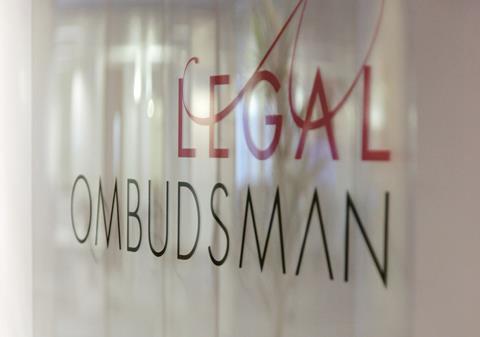Law firms should keep clients informed about delays caused by third parties, the legal ombudsman has advised.
In the latest of a series of articles taking lessons from past complaints, the ombudsman said it was unlikely ever to sanction a firm purely over a delay caused by an organisation such as HM Land Registry or a medical expert.
But firms may be held accountable – and could end up paying investigation fees and fines – if clients are left in the dark about whether or not their case is progressing. The ombudsman will also want to see evidence that firms have followed up the matter with the tardy third party.
The role of external agents in conflict between client and solicitor is significant. Half of complaints made to the ombudsman each year relate to communication and delay, and one of the most common features of those complaints is that the delay was caused by factors outside the firm’s control.

Common third-party delays may be waiting for property to be registered by Land Registry, probate to be granted by the Probate Registry or an immigration application to be considered by the Home Office. Delays in securing a court date or for action from the other side have resulted in complaints. Expert reports from a surveyor in property law or a medical report in a personal injury claim may also present a problem.
The ombudsman said: ‘We will not hold service providers responsible for delays they did not cause or could not have avoided.
‘But we do consider whether the service provider could or should have contacted the party who caused the delay to try to progress matters more quickly for the customer. We also consider the service provider’s communications with their customer.’
The complaints-handler said it expects customers to receive clear information when they are waiting for input from a third party. If the length of delay cannot be estimated, that should be communicated to the client, as should the costs implications of the extra wait.
The ombudsman set out case studies which resulted in different outcomes. In one, the firm had provided evidence it was not responsible for the delay, that it had chased the Probate Registry for an update and that it took reasonable steps to progress the matter in the interim. The case was resolved with no financial penalty by the early resolution team and so a case fee was not payable.
In another matter, relating to a PI claim, the evidence showed that the medical expert had delayed providing their report. But the ombudsman found that the firm had only contacted the expert once in five months and had not taken reasonable steps to progress the matter, nor kept the client updated. The complaint was upheld, the firm was directed to pay £200 to the client and a case fee was charged.
This article is now closed for comment.



























34 Readers' comments